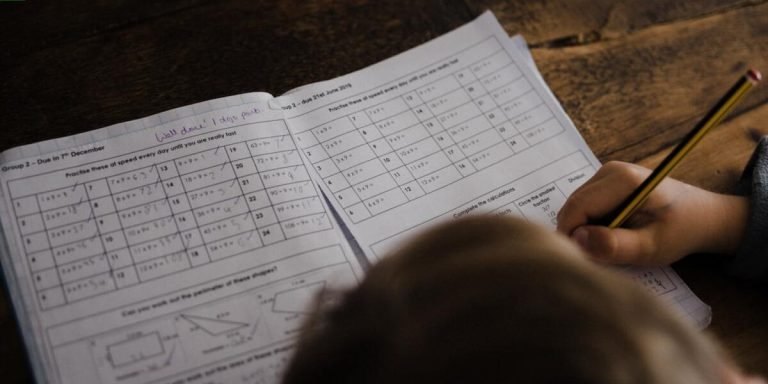Homeschooling in Texas Requirements: Your Comprehensive Guide
Understanding the specifics of “homeschooling in Texas requirements” can feel overwhelming for many parents considering this educational choice. However, knowing what’s expected and required is crucial to making an informed decision about your child’s education. This article aims to provide a comprehensive guide on essential aspects like state laws, curriculum choices, evaluation processes and more.
The information provided here will empower you with necessary facts that help clarify misconceptions and give clear direction as you navigate through homeschooling requirements in Texas. Whether you’re new to this journey or need additional clarification on existing rules, we’ve gathered everything under one roof to simplify the process for eager learners across the Lone Star State.
Did you know?
Did you know that in Texas, parents who decide to homeschool are not required by law to register their homeschool as a private school or notify any state institution of their decision? Quite the hands-off approach!
Understanding Texas Homeschooling Laws and Regulations
Navigating the realm of homeschooling in Texas can initially feel like a daunting task, given its specific set of requirements and regulations. However, it is essential to understand that these laws are established with educational excellence in mind – aimed at fostering holistic development for every child learning from home.
To start off with some basics about the law; contrary to popular belief, Texas does not have any stringent legal requisites when considering homeschool as an option. In fact, recognized as private schools under state education statutes since 1994 by Leeper v. Arlington ISD ruling (Texas Supreme Court), homeschooled students enjoy considerable freedom compared to their counterparts in other states.
The primary requirement lies within curriculum structuring which should incorporate five subjects: reading, spelling, grammar, mathematics and good citizenship. Significantly this doesn’t specify how you present your lessons or even require following traditional schooling methods all year long! It’s vital here for parents to discern what works best for their children’s unique needs while adhering broadly towards state expectations.
As we delve deeper into understanding the role technology plays amidst all this – it emerges as both an aid and advantage in contemporary times- especially marked by shifting paradigms post-pandemic world of 2023. The integration technology has revolutionized conventional teaching approaches employed so far.
Legal Prerequisites for Educating Your Child at Home in Texas
In recent years, homeschooling has gained popularity among parents seeking an alternative approach to traditional education. It’s pertinent for such families residing in Texas or those considering a move there to understand the legal prerequisites of educating at home clearly.
Homeschooling in Texas requirements are unique and somewhat lax compared with other states. Technically, any household teaching more than one unrelated student needs to comply as per private schools regulations rather than under specific laws guiding homeschools.
When planning to adopt this schooling system for your youngsters in the comfort of your home, remember these key points:
1. **Teach Required Subjects**: You need to teach reading, spelling, grammar, math and good citizenship – it’s mandatory by law but there is no specified curriculum structure you have adhere too.
2. **Use Educational Program:** Although not very stringent about what constitutes educational instruction; however credible resources like technology-based learning systems should be utilized which aid children grasp concepts easily.
3. **Diploma Recognition**: In some cases employers/colleges may hesitate recognizing homeschooled graduates regardless if they meet compulsory attendance age criteria or not because Texans don’t issue standard diplomas upon high school completion But most colleges now accept parentally-issued diploma coupled with SAT/ACT scores.
Required Subjects and Curriculum Guidelines for Texas Homeschoolers
Enrolling your child in homeschooling is a decision that comes with several responsibilities. Knowing and following the precise “homeschooling in Texas requirements” are crucial steps towards ensuring an enriching learning experience at home for your kids.
In Texas, there isn’t any stipulated or mandated list by the government regarding subjects to teach while homeschooling; however, certain subject areas have gained immense importance over time as educators recognize them integral components of a well-rounded education.
1) Reading – This basic skill empowers children with comprehension abilities leading towards analyzing works problem solving.
2) Grammar – Effective communication hinges heavily on proper punctuation, spelling, sentence structure- all gleaned from rigorous grammar lessons.
Establishing a Structured Homeschool Environment in Texas
Creating a structured homeschool environment in Texas is an exciting endeavor, yet one that brings many questions and challenges. In this modern age of education where technology plays such a crucial role, it’s essential for parents to understand the intricate blend of both formal curriculum needs and technological integration.
When we talk about homeschooling requirements in Texas, they are surprisingly flexible compared to other states. However, the key lies not just in adhering to these fundamental rules but integrating them seamlessly with effective utilization of educational technologies available today. If curated properly after thorough research on individual learning styles, tech-education can offer extensive customizations – making home-based education as impact-driven as traditional schooling if not more.
Essentially there are four aspects which form our core focus here: pedagogy (the method and practice of teaching), subject matter expertise (content knowledge), usability familiarity (navigating through numerous digital platforms) and ultimately understanding how various domains marry together forming ‘technology integrated’ lessons effectively promoting holistic growth at home-schools across Texas.
The crux hence remains intact – while navigating throughout your child’s academic journey from setting up a well-regulated daily routine or mapping out their educational plans aligning with state-defined mandates; remember technology isn’t just an auxiliary tool anymore – it forms part of standard classroom practices world-wide irrespective whether you’re physically located inside school premises or within comfort confines at homes!
Creating an Effective Learning Space According to State Standards
In the grand landscape of homeschooling, Texas opens itself up as a diverse field with its varied requirements and regulations. Adhering to these strict rules can seem daunting at first glance but integrating them into your children’s education system essentially provides a structured learning environment that promotes efficiency and effective studying habits.
Embarking on this journey starts by knowing what “homeschooling in Texas” actually entails. The state considers homeschools as private schools therefore they aren’t regulated by any specific criteria for curriculum or teacher qualifications. Yet, there are basic subjects you must incorporate – namely reading, spelling, grammar, mathematics and good citizenship.
Adapting to these requisites allows parents to create an apt home-based education setup aligned with the standards set forth by the State of Texas Departmental Education Services (DES). It is also essential part of establishing suitable space for quality learning.
Let’s delve deeper into creating an efficient learning space that not only suits your child’s needs but also meets those aforementioned necessities.
1) Structured Learning Schedule: Consistency is key when it comes being successful in homeschooling endeavors which includes having fixed times for study hours just like traditional schooling methods introduce pacing charts or schedules where each subject allotted appropriate time slot.
Record-Keeping Strategies: Monitoring Educational Progress
Record-keeping serves as an integral part of any structured homeschool environment. Not only does it help you meet the “homeschooling in Texas requirements,” but also facilitates tracking your child’s growth and development over time.
Maintain a daily logbook for documenting what topics or subjects were covered each day and how much time was spent on them. This can make sure that all essential subject areas are adequately addressed while adhering to guidelines concerning compulsory learning hours per week.
Keep track of all projects completed by conserving hard-copies or digital copies when possible—a testament to hands-on skills enhancement supported through individual tasks or group collaborations.
These tools not just align perfectly well with our theme; “Technology Integration In Education”, they’re incredibly helpful too! Online management systems like Power Homeschool – Acellus offer comprehensive features from lesson planning to grading — providing both convenience and efficiency for managing instructional delivery at home.
Navigating Assessments and Standardized Testing for Texan Homeschooled Students
In the realm of homeschooling in Texas, one prevalent concern among parents and educators alike is navigating assessments and standardized testing for their students. The requirements can often seem daunting to those new to the concept but believe it or not, they have a significant role in both evaluating academic progress and shaping future learning strategies.
Assessments are essential tools that help determine where a child stands educationally. In Texas homeschool setting, there’s flexibility when selecting assessment methods ensuring these cater best to your child’s specific learning style. Parents might choose traditional testing using written exams or opt for more practical approaches such as projects, presentations or portfolios.
When it comes down to standardized tests under Texas law, homeschooled students aren’t required by state-wide statute regulations; however conducting these annually from grade 3 onwards makes transition smoother if considering re-entry into public schooling system later on.
Embracing technology while teaching can further facilitate this process of evaluation immensely. With technological integration into daily lessons – like utilizing interactive e-books within reading sessions or leveraging adaptive software applications that provide real-time feedback – you’re able create an engaging educational environment conducive for optimal learner outcomes whilst keeping up with necessary evaluations simultaneously assuredly fulfilling your homeschooling in Texas requirements optimally.
While following competency-based individualized curriculum path which homeschooling promotes ultimately make our children independent learners ready take charge their own educational journey equipped relevant skills needed excel life beyond school boundaries too!
Preparing Your Child for Mandatory Evaluations
Firstly, it’s crucial to understand what these assessments entail. The primary purpose is not just test your child but also check their learning progress and growth over time. These tests measure students’ proficiency levels across various subjects such as English Language Arts (ELA), Mathematics, Science and Social Studies.
Next comes preparation for this assessment. A well-structured study routine helps children plan their studies efficiently while enabling them ample rest periods too. Utilize digital planners where they can mark up schedules keeping track of which subject needs attention when.
Being homeschooled doesn’t mean physical textbooks are still necessary; we live in an era where everything you need lies at your figure-tips – online! Traditional books have made way for e-books or interactive educational websites offering rich content aligning with core curriculum standards set out by state authorities – consider this while prepping your kid.
Furthermore, use adaptive software solutions designed specifically to help prepare students for standardized testing like those from Khan Academy or MobyMax – great tools nurturing kids’ academic strengths whilst addressing weaknesses professionally developed programs ensure effective learning process catering all student types regardless knowledge level from beginner advanced even helping fulfill ‘homeschooling Texas requirements’.
Opting In or Out of State Tests: Rights and Considerations
Understanding the requirements for homeschooling in Texas, especially when it comes to standardized testing procedures, is essential. Many parents are often faced with a critical decision: should they opt their homeschooled child into or out of state tests? Here we explore the rights and considerations around this issue.
Texas follows a lenient approach towards homeschooling, giving parents significant freedom to decide upon educational matters like curriculum selection and standardized assessments. However, before making any decisions about these subjects, there are several factors worth considering.
Decide if your child should take part in state-sanctioned examinations as part of your homeschooling program in Texas.
1. Consider Your Child’s Learning Style – Standardized exams usually follow traditional methodologies that might align better with some students’ learning styles than others’. If your kid thrives under structured settings where knowledge recall plays an important role, opting-in could be beneficial.
2. Gauge College Aspirations – For kids planning on applying to colleges straight from home school environments without going through public high school first – taking official exams can supply proof of academic readiness.
Conclusion
Going through the homeschooling journey can be both exhilarating and challenging, but with knowledge about “homeschooling in Texas requirements”, you are poised to make informed decisions for your child’s education. The sheer joy of molding their future, shaping their perspectives while embracing what interests them is an adventure worth embarking on.
Remember that our website serves as a treasure trove of information – from deeper dive articles into various facets of childhood education to comprehensive guides like this one. We understand the unique needs and concerns of every parent or educator out there; hence we offer resources tailored specifically towards equipping you adequately. Make it a habit to browse around our platform regularly!
Your ongoing support nurturing young minds just got easier!







